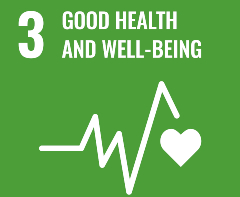
The role of the sociologist in pandemic response
Dr Elisa Pieri is providing crucial insights into how the COVID-19 response measures impact on different groups in society and how we can protect the vulnerable in these unprecedented circumstances.
The challenge
Pandemics have different origins and triggers. Growing urban populations and higher levels of connectivity present huge challenges in containing and responding to the potential spread of a disease. At the same time, pandemic response needs to account for the diverse make-up of our society.
Governments and international bodies plan extensively for pandemics. But what can we learn from the COVID-19 response about how we can plan in a more inclusive way, understanding the needs of citizens and of society’s most vulnerable?
Manchester’s solution
Dr Elisa Pieri, Lecturer in Sociology at The University of Manchester’s School of Social Sciences, is an expert in pandemic preparedness.
“A situation of crisis exacerbates existing inequalities and creates new vulnerable groups,” says Dr Pieri. “You can’t plan for a lockdown situation based on a ‘typical’ 2.4 family. You have to account for vulnerable people, such as the homeless, the socially isolated and other marginalised groups, and ensure that they are accounted for.”
During the UK lockdown, Dr Pieri has spoken to the media about the social implications of these unprecedented measures, and assisted the UK Cabinet with their enquiries about the social effects of lockdown. As an expert on pandemics, she has also been the reviewer of several research project proposals on COVID-19 for the Swiss National Science Foundation.
"Pandemics generate a wide range of pressing ethical and social issues," says Dr Pieri. "They are difficult to resolve and impact different groups in society unevenly. We must address this, also in our pre-pandemic planning, striving towards inclusive decision-making and debate, and finding equitable solutions/"
Dr Pieri highlights the importance of prioritising the vulnerable, including at the end of the lockdown period.
“We need to think strategically about who we prioritise in coming out of lockdown,” she says. “Although the current restrictions are frustrating for many people, it is a potentially dangerous situation for the vulnerable. Their needs must be prioritised.”
Why social science matters
"As sociologists we can provide vital insights on society, on various social processes and social behaviour," explains Dr Pieri. "We can also explore current values that are implicit in pandemic planning and contribute to re-dress problematic assumptions."
Consequently, sociological knowledge and expertise is also vital when planning for a crisis situation, alongside medical knowledge and logistic expertise.
“Policymakers make frequent misjudgements about how people will respond,” she says. “They expect the public to either be entirely compliant with emergency measures or for society to break down entirely. The reality is usually neither.”
Sociologists can also engage various publics in debate over pandemic planning and feedback public vies and priorities on various measures. Dr Pieri explains: "Mobilising social science expertise alongside the expertise already dominant in pandemic planning would contribute to achieving more effective, equitable and socially robust mitigation against pandemics."
The role of the public
Dr Pieri’s research demonstrates the importance of making the public an active stakeholder in pandemic preparation and response. In her view, this is a key lesson that governments need to take from the coronavirus outbreak.
“Outside of an outbreak, the most public debate about pandemics comes through disaster movies,” she says.
“We need more sustained public debate through the media and with policymakers and practitioners to allow the public to better understand the risk of pandemics and for all of society to be able to better prepare against it.
“The public are capable of participating and have a right to take a more active role.”
Meet the researcher
- Dr Elisa Pieri, Lecturer in Sociology
- Pandemics: The Basics (Routledge). Dr Pieri's book provides an engaging, jargon-free introduction to the threat of global pandemics and its mitigation.
- Radical uncertainty, sociology and the social impacts of pandemic response on citizens. Discover Society, March 2020
- Mitigating against the threat of global pandemics. Discover Society, August 2019
- Media framing and the threat of global pandemics: the Ebola crisis in UK media and policy response. Sociological Research Online, 2019
Doing Things Differently webinar
In this webinar Elisa is joined by Kieron Flanagan and Andy Westwood to discuss how scientific advice is structured in the UK, the particular challenges of responding to a pandemic and whether the right people are in the room (or Zoom) to best advise on the way forward.

